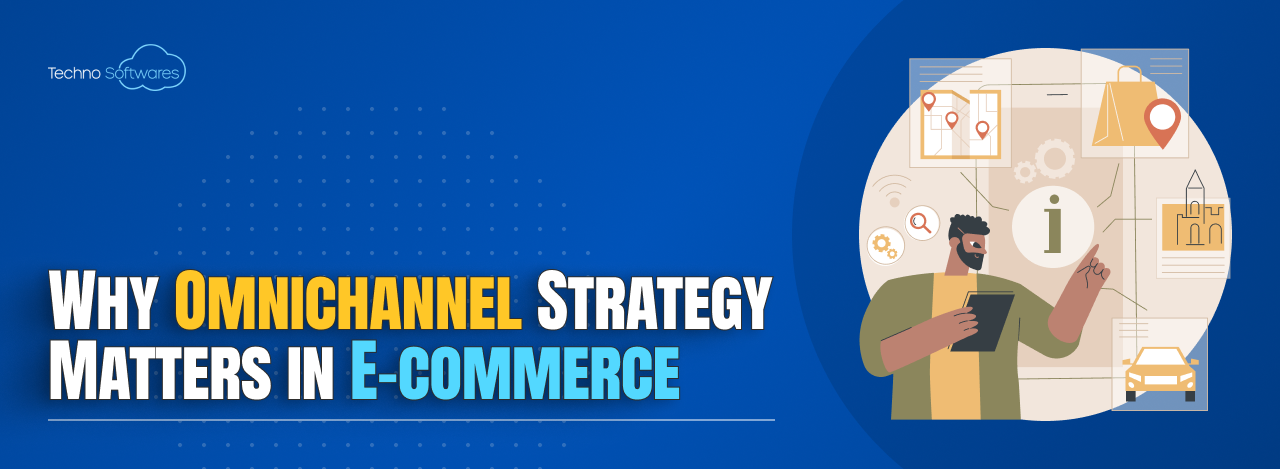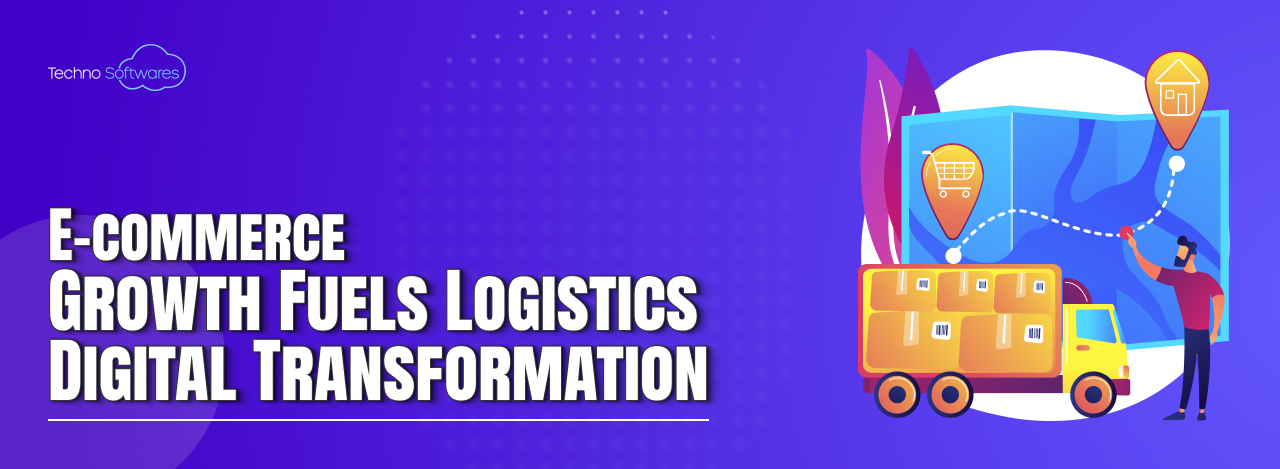The Importance of Omnichannel Strategies for E-commerce Success
In the rapidly evolving landscape of e-commerce, we find ourselves navigating a complex web of customer expectations and technological advancements. Omnichannel strategies have emerged as a vital approach for businesses aiming to thrive in this environment. At its core, an omnichannel strategy integrates various channels—be it online platforms, physical stores, mobile applications, or social media—into a cohesive customer experience.
This integration allows us to meet our customers where they are, providing them with a seamless journey that enhances their overall satisfaction and loyalty. As we delve deeper into omnichannel strategies, we recognize that they are not merely about having multiple sales channels. Instead, they focus on creating a unified brand experience across all touchpoints.
This means that whether a customer interacts with us through our website, mobile app, or in-store, they should receive consistent messaging and service quality. By understanding the nuances of each channel and how they interconnect, we can better cater to our customers’ preferences and behaviors, ultimately driving sales and fostering long-term relationships.
Key Takeaways
- Omnichannel strategies are essential for e-commerce success as they provide a seamless shopping experience across multiple channels.
- Implementing omnichannel strategies can significantly impact customer experience by providing convenience, consistency, and personalization.
- Techno Softwares play a crucial role in creating a seamless shopping experience by integrating various channels and providing a unified platform for customers.
- Leveraging data and analytics is key to omnichannel success as it helps in understanding customer behavior, preferences, and trends across different channels.
- Integrating physical and digital channels is important for a unified customer experience, allowing customers to seamlessly transition between online and offline shopping.
The Impact of Omnichannel Strategies on Customer Experience
The impact of omnichannel strategies on customer experience cannot be overstated. We have observed that customers today expect a fluid transition between different shopping environments. For instance, they might research products online before visiting a physical store to make a purchase.
If we can provide them with a consistent experience across these channels, we significantly enhance their satisfaction. This seamlessness not only builds trust but also encourages repeat business, as customers feel valued and understood. Moreover, omnichannel strategies allow us to personalize the shopping experience in ways that were previously unimaginable.
By leveraging data from various channels, we can tailor our offerings to meet individual customer needs. For example, if a customer frequently browses a specific category on our website, we can send them targeted promotions or recommendations via email or push notifications. This level of personalization fosters a deeper connection with our brand and encourages customers to engage with us more frequently.
The Role of Techno Softwares in Creating a Seamless Shopping Experience

In our quest for e-commerce success through omnichannel strategies, the role of technology cannot be overlooked. Techno softwares play a crucial part in creating a seamless shopping experience for our customers. These tools enable us to integrate various channels effectively, ensuring that inventory management, customer data, and sales processes are synchronized across platforms.
By utilizing advanced software solutions, we can streamline operations and reduce the friction that often arises when customers switch between channels. Furthermore, these technologies empower us to analyze customer behavior in real-time. With the right software in place, we can track how customers interact with our brand across different touchpoints.
This data allows us to make informed decisions about marketing strategies, product placements, and promotional campaigns. By harnessing the power of techno softwares, we can not only enhance the shopping experience but also drive operational efficiency and profitability.
Leveraging Data and Analytics for Omnichannel Success
Data and analytics are at the heart of successful omnichannel strategies. As we gather insights from various customer interactions, we gain a comprehensive understanding of their preferences and behaviors. This information is invaluable in shaping our marketing efforts and product offerings.
By analyzing data trends, we can identify which channels are most effective for reaching our target audience and adjust our strategies accordingly. Moreover, leveraging data allows us to anticipate customer needs and preferences. For instance, if we notice an uptick in online searches for a particular product during a specific season, we can proactively stock up on inventory and create targeted marketing campaigns to capitalize on this trend.
By being data-driven in our approach, we position ourselves to respond swiftly to market changes and customer demands, ultimately enhancing our omnichannel effectiveness.
Integrating Physical and Digital Channels for a Unified Customer Experience
The integration of physical and digital channels is essential for creating a unified customer experience. We understand that many customers prefer to research products online before making a purchase in-store or vice versa. Therefore, it is crucial for us to ensure that these channels work harmoniously together.
For example, offering services such as click-and-collect allows customers to order online and pick up their items at a nearby store, blending the convenience of online shopping with the immediacy of physical retail. Additionally, maintaining consistent branding and messaging across all channels reinforces our identity and builds trust with customers. Whether they encounter us through social media ads or in-store displays, the experience should feel cohesive and familiar.
By integrating our physical and digital channels effectively, we create an environment where customers feel comfortable engaging with our brand in whichever way suits them best.
The Importance of Personalization in Omnichannel Strategies

Personalization is a cornerstone of effective omnichannel strategies. As we strive to create meaningful connections with our customers, tailoring their experiences becomes paramount. By utilizing data collected from various touchpoints, we can deliver personalized content and recommendations that resonate with individual preferences.
This not only enhances customer satisfaction but also drives conversion rates as customers are more likely to engage with offers that align with their interests. Moreover, personalization extends beyond product recommendations; it encompasses the entire customer journey. From personalized email campaigns to targeted social media ads, every interaction should reflect an understanding of the customer’s unique needs.
By investing in personalization efforts within our omnichannel strategies, we foster loyalty and encourage repeat business as customers feel recognized and valued by our brand.
Overcoming Challenges in Implementing Omnichannel Strategies
While the benefits of omnichannel strategies are clear, implementing them is not without its challenges. One significant hurdle we face is ensuring that all channels are adequately integrated and that data flows seamlessly between them. This requires investment in technology and training for our teams to ensure everyone is aligned with the omnichannel vision.
Additionally, managing inventory across multiple platforms can be complex; however, with the right systems in place, we can mitigate these challenges effectively. Another challenge lies in maintaining consistent messaging across all channels. As we expand our reach through various platforms, it becomes crucial to ensure that our brand voice remains uniform.
This requires careful planning and coordination among marketing teams to ensure that campaigns are synchronized and reflect our core values. By addressing these challenges head-on, we can create a robust omnichannel strategy that delivers exceptional results.
Case Studies: Successful Implementation of Omnichannel Strategies with Techno Softwares
To illustrate the effectiveness of omnichannel strategies powered by techno softwares, we can look at several case studies from leading brands that have successfully navigated this landscape. One notable example is a major retail chain that integrated its online and offline operations using advanced inventory management software. By synchronizing stock levels across all channels, they were able to offer real-time availability information to customers, significantly reducing frustration and enhancing the shopping experience.
Another case study involves a cosmetics brand that utilized data analytics tools to personalize their marketing efforts across multiple platforms. By analyzing customer purchase history and preferences, they were able to send targeted promotions via email and social media that resonated with their audience. This approach not only increased engagement but also drove sales growth as customers felt more connected to the brand.
In conclusion, as we continue to explore the world of e-commerce through omnichannel strategies, it becomes evident that success hinges on understanding customer needs and leveraging technology effectively. By integrating physical and digital channels while prioritizing personalization and data-driven decision-making, we can create exceptional shopping experiences that foster loyalty and drive growth in an increasingly competitive marketplace.
If you are interested in learning more about how AI can help personalize your marketing strategies, check out Techno Softwares’ article on How AI Can Help You Personalize Your Marketing Strategies. By leveraging artificial intelligence, you can create more targeted and effective marketing campaigns to enhance your omnichannel strategies for e-commerce success. Additionally, if you want to improve your ROI through email marketing automation, Techno Softwares has a helpful guide on ROI with Email Marketing Automation. Don’t miss out on valuable insights and tips to optimize your online business.
FAQs
What is an omnichannel strategy in e-commerce?
An omnichannel strategy in e-commerce refers to the seamless integration of various sales and marketing channels, such as online stores, mobile apps, social media, and physical stores, to provide a unified and consistent shopping experience for customers.
Why is an omnichannel strategy important for e-commerce success?
An omnichannel strategy is important for e-commerce success because it allows businesses to meet customers where they are, provide a consistent brand experience across all channels, and offer convenience and flexibility in shopping. This can lead to increased customer satisfaction, loyalty, and ultimately, higher sales and revenue.
How can Techno Softwares help in creating an omnichannel strategy for e-commerce?
Techno Softwares can help in creating an omnichannel strategy for e-commerce by providing expertise in developing and integrating various digital platforms, such as websites, mobile apps, and social media, to ensure a seamless shopping experience for customers. They can also offer solutions for inventory management, order fulfillment, and customer relationship management to support the omnichannel strategy.





